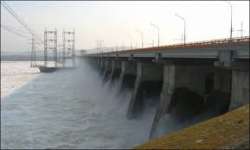Indus water dispute: Indo-Pak talks fail to break deadlock over Ratle and Kishanganga hydroelectric projects
The second round of discussions between the two countries, held on September 14 and 15 under the aegis of the World Bank, focused on resolving differences over Ratle and Kishanganga hydroelectric projects.

The two-day talks between India and Pakistan over Indus water dispute ended on Friday without reaching any agreement.
According to the World Bank, the talks failed to break the deadlock on the design of two hydro-electric power plants in Jammu and Kashmir. However, the World Bank said that it will continue to work with complete impartiality in fulfilling its responsibilities under the pact.
The second round of discussions between the two countries, held on September 14 and 15 under the aegis of the World Bank, focused on resolving differences over Ratle and Kishanganga hydroelectric projects. Islamabad had raised objections over both these projects.
“While an agreement has not been reached at the conclusion of the meetings, the World Bank will continue to work with both countries to resolve the issues in an amicable manner and in line with the Treaty provisions,” the World Bank said in a statement.
The statement added that India, Pakistan and the World Bank appreciated the discussions and reconfirmed their commitment to the preservation of the treaty.
The Indus Water Treaty was signed in 1960 after nine years of negotiations between India and Pakistan with the help of the World Bank.
The latest dispute arose over the construction of the 330-MW Kishenganga and 850-MW Ratle hydroelectric plants on the tributaries of the Jhelum and Chenab rivers in Jammu and Kashmir.
India was given permission to construct the power plants in August this year after a similar discussion on the technical issues over the Indus Waters Treaty concluded in a “spirit of goodwill and cooperation”.
Pakistan, however, alleged that India had violated the treaty by unrestricted use of the waters of the two western rivers.
Islamabad also questioned the technical design features of the two hydroelectric plants saying it contravened the agreement.